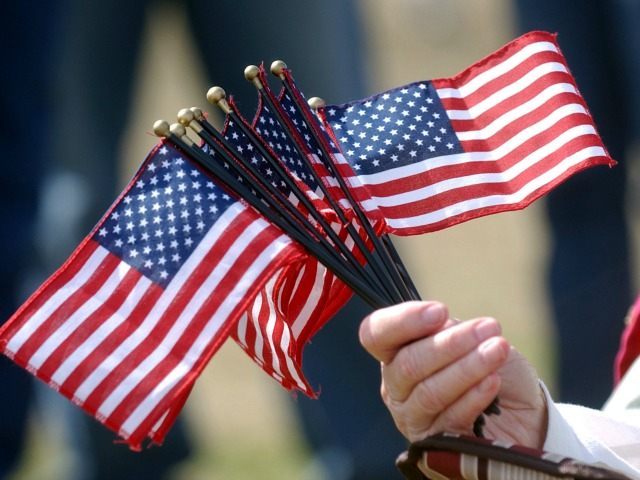What made America great?
I’ll give you a hint–it wasn’t free stuff. It wasn’t free education. It wasn’t free healthcare. It was the freedom to thrive–the freedom to be left alone.
America is the land people set sail for–to get away from big government, to find freedom, to make their fortune. We have to first understand what made America great before we can even think about influencing the rest of the world.
Some candidates for President like Hillary Clinton and Marco Rubio think we should spread American style-freedom and democracy around the world.
But is hasn’t worked out so well. In Hillary’s war in Libya the so-called freedom fighters won, but now chaos and jihadists rule. Our ambassador was assassinated and now ISIS is a serious threat.
In Iraq, over 12 years after the toppling of Hussein, chaos still rules.
Clinton, Bush, and Rubio also want to topple Assad in Syria. My fear is that if that happens, ISIS will take over all of Syria.
The world had great hope when the Arab Spring began, but the Arab Spring quickly became an Arab Winter as chaos and war and radical Islam followed.
Why did revolution lead to freedom in America but not in the Middle East?
How did America remain stable with continuous government while throwing off the yoke of the king? A big part of the answer is that we threw off the king but kept our local government and our religious and legal traditions.
So why didn’t the Arab Spring end in a constitutional republic like ours?
For starters, the Middle East had no Magna Carta moment. Eight centuries ago, our forefathers came together at Runnymede to begin limiting the power of the monarch. Ever since we have jealously guarded against tyranny and limited centralization of power. The Middle East has no such tradition. In fact, the Middle East, for the most part, knows only despotism.
The failure of the Arab Spring to bring forth stable freedom loving societies can also be understood by looking closely at the Arab Spring.
Mohamed Bouazizi is the tragic face of the Arab Spring. The 26-year-old Tunisian street merchant set himself afire and sparked what became known as the Arab Spring.
The economist Hernando DeSoto reports that Bouazizi wanted to form: “a company of his own and dreamed of buying a pickup truck to take produce to other retail outlets to expand his business. But to get a loan to buy the truck, he needed collateral–and since the assets he held weren’t legally recorded or had murky titles, he didn’t qualify.”
Meanwhile, government inspectors made Bouazizi’s life miserable, shaking him down for bribes when he couldn’t produce licenses that were (by design) virtually unobtainable. He tired of the abuse.
The day he killed himself, inspectors had come to seize his merchandise and his electronic scale for weighing goods. A tussle began. One municipal inspector, a woman, slapped Bouazizi across the face. That humiliation, along with the confiscation of just $225 worth of his wares, is said to have led the young man to take his own life.”
His horrific death reminds me of how different it was when my great-grandfather came to America at age fourteen. He wasn’t in America more than six months when his father died. My great-grandfather was little more than a street merchant like Bouazizi until he saved enough to purchase a truck, elevating him to what they called then a “truck farmer,” a level that allowed him to purchase a home and small bit of land.
My grandfather built upon that success With very little governmental obstacles my grandfather set up a dairy to bottle and deliver milk from his basement. Imagine how hard it is today, even in America, to set up a business in your basement.
What made America great was the freedom to start a business in your garage.
The difference between America when my great grandfather arrived and the Arab world today is that bribes and cronyism were not necessary to get a license to purchase a truck or sell vegetables.
To understand how difficult it is to start a business in certain parts of the world John Stossel travelled to Hong Kong and India to see how long it would take to legally open a business. In Hong Kong he was open for business and selling frisbees in a day. In India, you can still be waiting for a license thirty days later.
Freedom means the liberty to sell stuff without hindrance from government. Not only does this lesson need to be learned in the Arab world, but here in America we need to be aware that the roadblocks we continue to erect are damaging our ability to thrive and grow.
Freedom and capitalism made America great and yet some seem to forget our origins. We now even have a Presidential candidate who promotes socialism. Let me tell you, there is nothing sexy or cool about socialism.
Socialism is the absence of choice. Under socialism, some government official decrees who can enter into business. Both sellers and buyers are controlled by the state. Bernie tries to rationalize his socialism by calling it democratic socialism. But it doesn’t matter if a majoritarian or an authoritarian takes away your choice. The result is the same–lack of choice.
When choice is taken away by the state only politically favored individuals are granted permits to buy and sell. There is nothing fair about socialism. Socialism simply replaces a voluntary marketplace with a coerced market where choices are limited by the state and licenses are doled out to political cronies–hardly a recipe for fairness.
America is great and will remain so as long as we understand that our greatness comes from freedom of choice. Spending trillions of dollars to create “democracies” in our image around the world has not worked and ultimately the cost in both lives and treasure threatens what made America great.

COMMENTS
Please let us know if you're having issues with commenting.